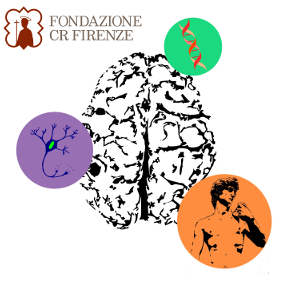LENS
LENS is a scientific research centre located in Sesto Fiorentino (FI). LENS promotes and facilitates the exchange of ideas, scientific techniques, and technical skills among researchers from European countries. Moreover, LENS is part of the National Research Infrastructure Roadmap as one of the most important interdisciplinary research institutions in Italy. Several European universities have participated in the organisation of LENS, through agreements with the University of Florence.
The biophysics and biophotonics lab at LENS acts as a hub of access to advanced microscopy technologies, thanks to its multiple imaging setups run (and often also developed) by dedicated specialists.
The research lines of the biophysics and biophotonics lab range from single molecule biophysics, to biomedical imaging, neuro and cardiac imaging, and big data machine learning. In biomedical imaging LENS develops spectroscopic and imaging tools to detect tissue disease in collaboration with hospitals for clinical research. New advanced microscopy techniques are established to detect morpho-functional aspects in brain and hearth. Moreover, in LENS new methods are pursued to further push the temporal and spatial resolution of optical microscopes, thus developing setups enabling fast volumetric imaging with cellular or sub-cellular resolution. The big data produced by high throughput, high resolution and high speed imaging techniques is managed, processed and analysed also through machine learning approaches.
Neuroscience Department, Meyer Children’s Hospital IRCCS
Meyer Children’s Hospital IRCCS is a 250-bed public hospital that is part of the Italian National Health System and is integrated with the University of Florence, with which it carries out healthcare, teaching, and research activities. Meyer is a highly specialized children’s hospital and is a national reference center for complex diseases, with all pediatric medicine and surgery services available. The hospital aims for excellence in all of its activities, mixing modern technology, research, and new therapies with a holistic approach toward the care of young patients and their families. The hospital is currently undergoing a rapid phase of expansion, including a new training center, an advanced simulation center (SimMeyer), a family center, and an outpatient center. The strategic planning for a new research center is underway. Meyer is a member of the Italian Association of Children’s Hospitals (AOPI) and the European Children’s Hospitals Organisation (ECHO).
The Neuroscience Department of the Meyer Children’s Hospital, Florence, is internationally renowned for its expertise in epilepsy with its EEG, MRI, neuropsychological, genetic aspects and functional characterization of identified mutations using neurobiological approaches. The main area of expertise of Prof. Guerrini’s team is the medical care of patients with rare and complex epilepsies, the presurgical assessment and surgical treatment of children with drug resistant epilepsy, and the identification of new causative genes for developmental and epileptic encephalopathies and new genotype/phenotype correlations for these conditions.
UNIFI
The University of Florence is a public higher education institution whose main mission is performing research and teaching activities. It promotes the development of critical knowledge which is open to the exchange of information, cultural cooperation and interaction.
The University of Florence is one of the largest organisations for research and higher education in Italy with 49.432 students, 388 Full Professors, 802 Associate Professors, 180 Researchers, 319 Temporary Researchers, 930 PhD students, 735 research fellows and 1,380 technical and administrative staff. The Researchers operate within 21 different Departments and can benefit from approximately 40 research structures, including inter-departmental and inter-university centres, as well as specialised research, knowledge transfer and advanced training centres. Moreover, a significant part of the yearly budget is allocated to scientific research. UNIFI Research Community can rely on dedicated staff with extensive experience in the field of support services for researchers. UNIFI Research Area can count on 40 staff units in charge of supporting research quality policies, technology transfer and participation in funding opportunities at regional, national, European and international level. The Area offers, among others, a dedicated information service, management and reporting activities for funded projects, support for patents, spin-offs, start-ups and joint labs.
The University of Florence has adhered to the principles of the European Charter and Code for Researchers and, since December 2018, is one of the 13 Italian universities that have principles of the European Charter and Code for Researchers and, since December 2018, is one of the 13 Italian universities that have been granted the HRS4R Human Resources Strategy For Researchers Award.
